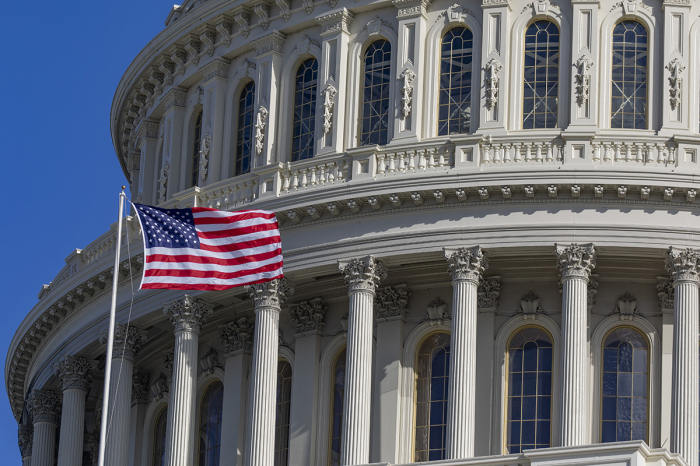Ex-Palantir employees warn Big Tech ‘normalizing authoritarianism’

A signature piece of legislation for President Donald Trump that would impose a 10-year moratorium on state-level artificial intelligence (AI) regulations is facing backlash over potential privacy and data-sharing threats.
Passed last month by the U.S. House of Representatives, Trump’s One Big Beautiful Bill Act (H.R.1), a wide-ranging budget reconciliation bill, bars states or their political subdivisions from enforcing laws that limit, restrict or regulate AI models, systems or automated decision systems for a decade, starting from the bill’s enactment.
The only exceptions are state laws that facilitate AI deployment or align with federal requirements.
The bill also allocates $500 million through 2034 to the Department of Commerce for AI-driven modernization of federal IT systems, emphasizing efficiency and cybersecurity. This funding could open lucrative opportunities for companies like Palantir, a data analytics and AI firm known for its work with government agencies.
Palantir’s platforms, such as Gotham and Foundry, are already integral to federal operations, and its recent $480 million contract with the U.S. Army for the Maven Smart System underscores its growing role in AI-driven government projects.
Under the bill, Section 43201 states: “Except as provided in paragraph (2), no State or political subdivision thereof may enforce, during the 10-year period beginning on the date of the enactment of this Act, any law or regulation limiting, restricting, or otherwise regulating artificial intelligence models, artificial intelligence systems, or automated decision systems.”
Rep. Marjorie Taylor Greene, R-Ga, is among those calling on the Senate to remove the provision in the bill that would limit state regulations on AI.
“Full transparency, I did not know about this section on pages 278-279 of the OBBB that strips states of the right to make laws or regulate AI for 10 years,” Greene wrote on X Tuesday. “I am adamantly OPPOSED to this and it is a violation of state rights and I would have voted NO if I had known this was in there. We have no idea what AI will be capable of in the next 10 years and giving it free rein and tying states hands is potentially dangerous.”
Only two Republicans voted against the bill in the House last month: Reps. Thomas Massie of Kentucky and Warren Davidson of Ohio. Those who support the bill’s restriction on state regulations for AI believe that varying state laws could stand in the way of innovation on a national scale.
According to the New York Times, Trump has longtime ally Peter Theil, a founder of Planatir, to implement his March executive order, which calls on the federal agencies to integrate data-sharing practices — an order that has raised fears among civil libertarians as potentially laying the groundwork for a vast federal surveillance database.
Palantir is in talks with several federal agencies, including the Internal Revenue Service and the Social Security Administration, on plans to purchase Palantir’s technology, the Times reported. At least four other federal agencies, including the Departments of Homeland Security (DHS) and Health and Human Services (HHS), are currently using Palantir platform Foundry to analyze and organize data, according to the Times.
In 2025, Palantir has netted over $113 million in federal contracts, the Times reported, in addition to a $795 million contract from the Department of Defense (DOD) in May.
Since 2009, federal records show that Palantir has won $2.7 billion in federal contracts, including more than $1.3 billion in DOD contracts.
While Palantir CEO Alex Karp has publicly stated the company’s commitment to ethical AI deployment, the partnership with the Trump administration has drawn sharp criticism from privacy advocates and civil liberties groups, who warn that such a database could enable unprecedented government overreach.
Last month, 13 former Palantir employees released a public letter calling Karp to sever its ties with the White House, while others warned about potential data breaches or privacy risks. The letter described the all-seeing stones from the “Lord of the Rings” series, which inspired the company’s name, warning that guardrails previously implemented “have been violated and are rapidly being dismantled at Palantir Technologies and across Silicon Valley.”
“Big Tech, including Palantir, is increasingly complicit, normalizing authoritarianism under the guise of a ‘revolution’ led by oligarchs,” the letter stated. “We must resist this trend.”


















